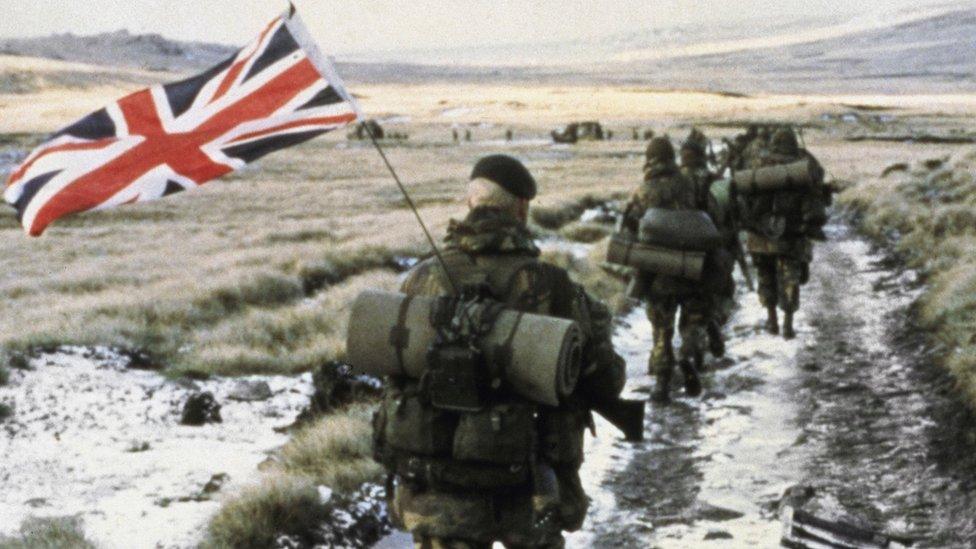Falklands War doctor recalls ship's missile attack
- Published
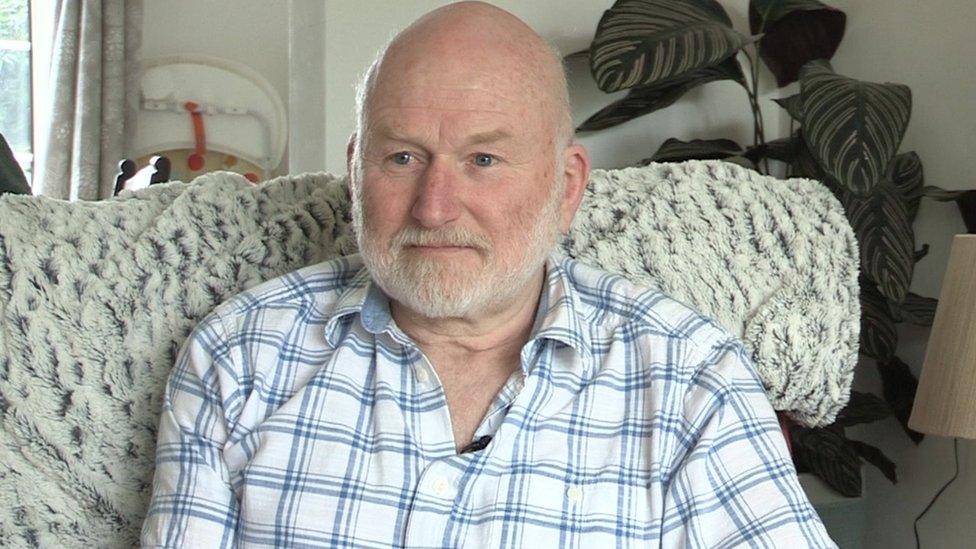
Dr Gordon Brooks had only recently qualified as a doctor before setting sail on the Atlantic Conveyor
Amid the terror of the Falklands War, the British ship Atlantic Conveyor was hit by two Argentine missiles and sank in the South Atlantic.
Dr Gordon Brooks, then aged 25, was a newly-qualified Royal Navy medical officer onboard the ill-fated merchant ship.
Forty years on, he has opened up about the moment the vessel was hit and the air raid sirens broke out, sparking scenes of carnage onboard.
"You've seen the films and it all works out nicely for the people involved, and then suddenly it doesn't," Mr Brooks told BBC North West Tonight.
"It's tragic and people are screaming and dying and in distress and there's nothing you or very little you can do."
The conflict began on 2 April, 1982 when Argentina invaded the Falkland Islands, which had been held by Britain for 150 years.
The 10-week war would claim the lives of more than 900 military personnel and civilians before Argentine forces surrendered.
This included 12 crew members killed when Atlantic Conveyor was targeted.
"We knew the 25 May was an important date for the Argentines," said Mr Brooks, now father-of-four, who had grown up in Blackpool, Lancashire.
"It was their national day and everybody expected something would happen on that day."
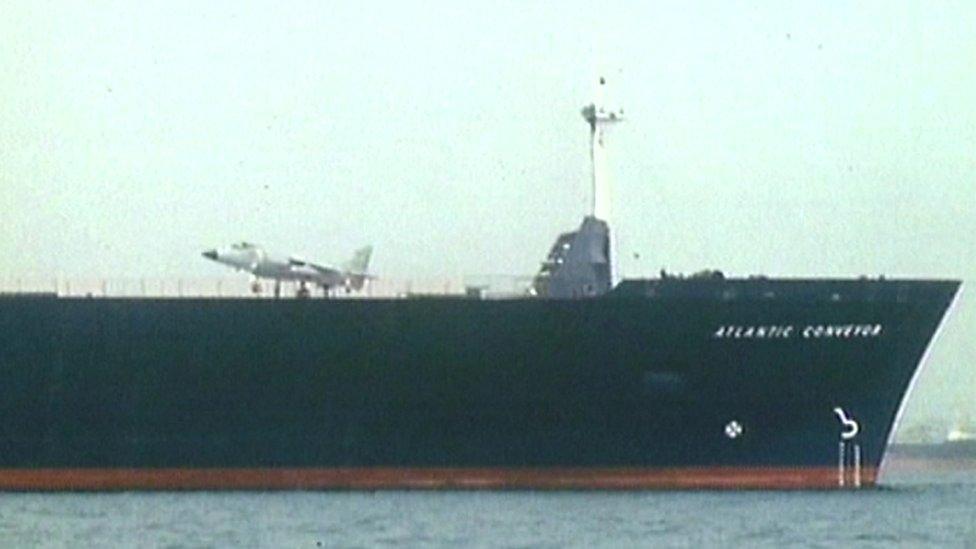
British ship Atlantic Conveyor was hit by two Argentine missiles in the South Atlantic
Prior to setting sail, Mr Brooks had been tasked with overseeing the medical preparations for the ship, which was used to transport aircrafts and munitions, including creating an operating theatre below deck within two weeks.
Despite only recently qualifying he wanted to do his bit to help with the war effort.
"I thought that it was my duty, foolishly at that time, to immediately volunteer to go south," he said.
"I can't believe it now because I had a one-month-old baby girl and we were newly married."
The ship set sail on 25 April and was struck one month later on the same day HMS Coventry was hit., external
He described the aftermath as something like a "horror or science-fiction film".
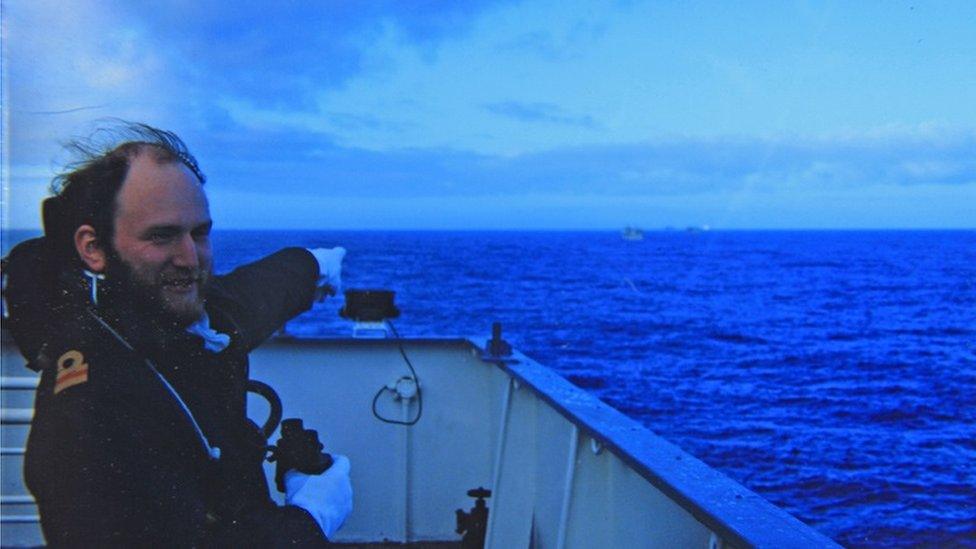
Dr Gordon Brooks survived the missile attack
"The lights had gone out and there's bangs and rumblings going on all over. There's smoke hanging in the air, and now the deck is starting to heat up," he said.
"It's getting so hot that the shoes are sticky under your feet. You're sticking to the deck."
Eventually the order to abandon ship was given and he was rescued from the waters by another ship.
Mr Brooks, who later returned to the Falkland Islands on another ship after the war ended, said his experience inspired him to "seize every day".
That included reaching the final four of a selection process to find and train Britain's first astronaut.
"It changed my life, it made me carry out a lot of adventures in different parts of the world," he said.
"I think in a way I came out bizarrely more fulfilled for having that great shock so early in my life."

Why not follow BBC North West on Facebook, external, Twitter, external and Instagram, external? You can also send story ideas to northwest.newsonline@bbc.co.uk
Related topics
- Published18 April 2022
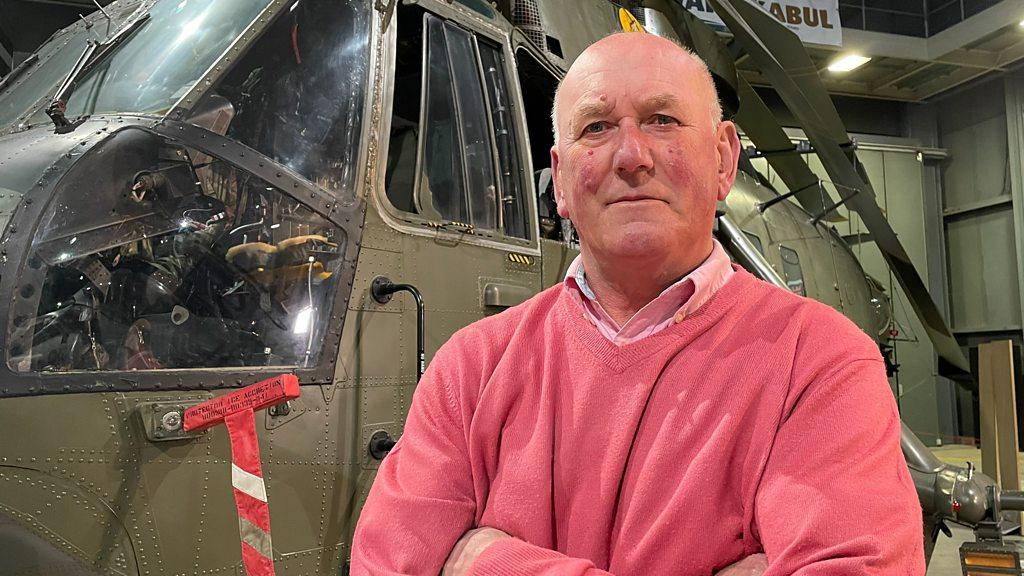
- Published19 April 2022
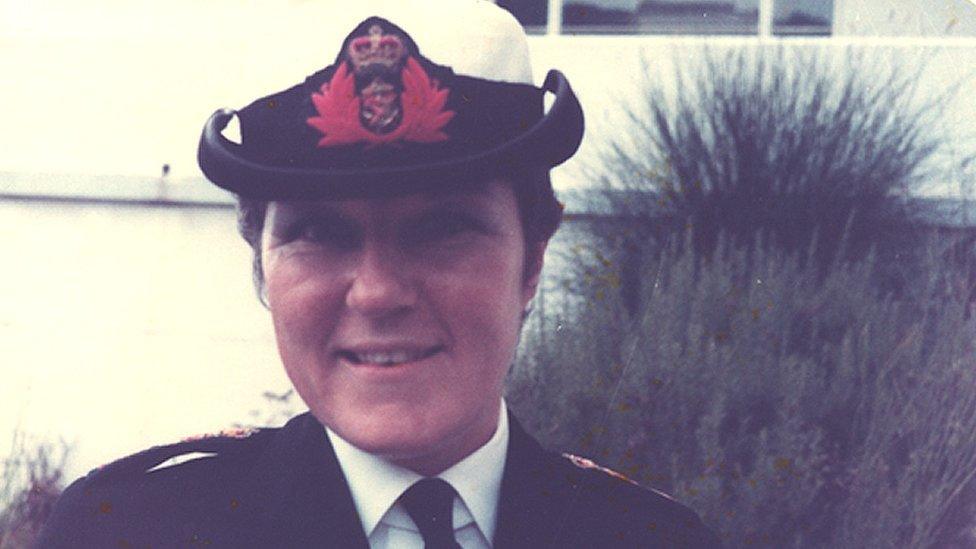
- Published11 April 2022
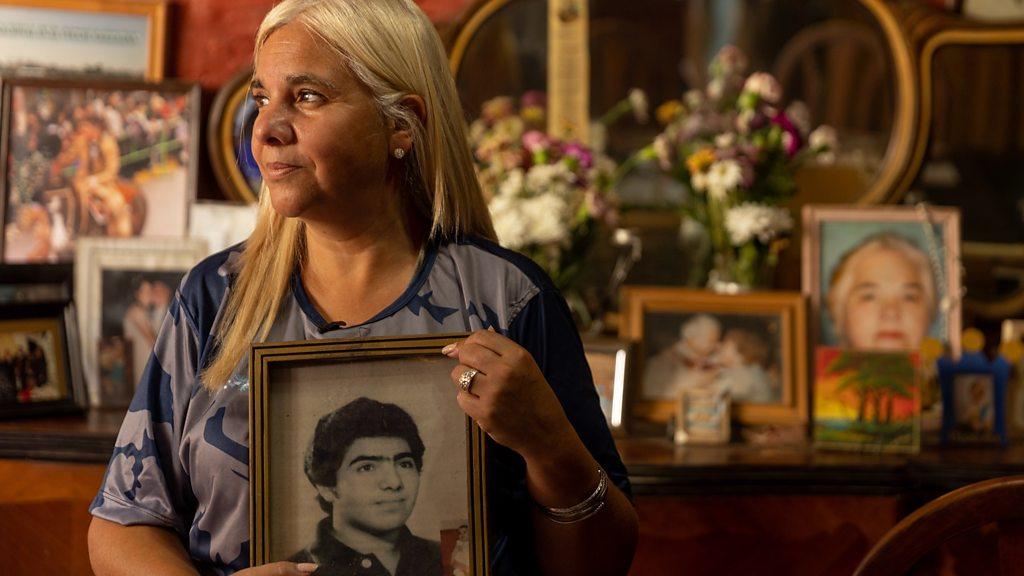
- Published8 April 2022
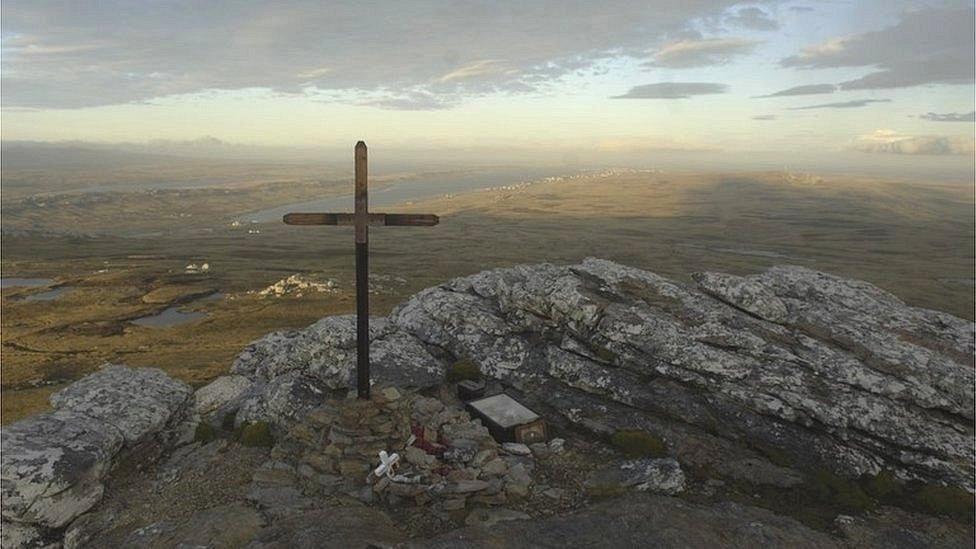
- Published7 April 2022
